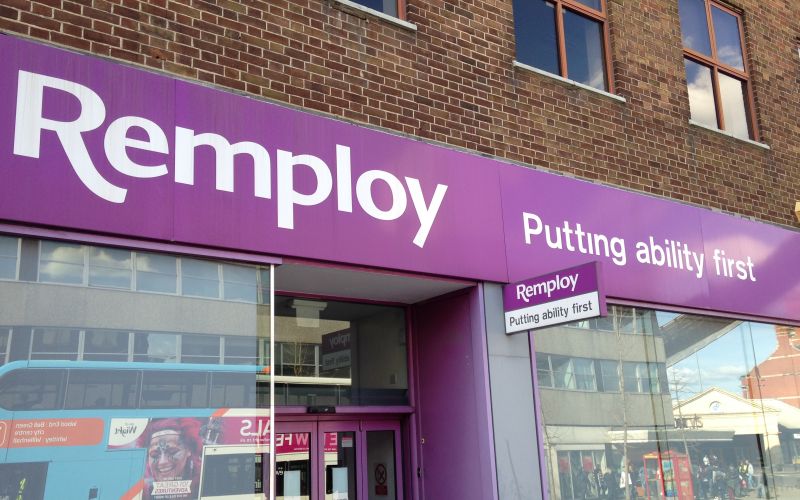Some of the country’s most controversial and discredited outsourcing companies are set to win contracts under the government’s new programme to find jobs for disabled people and other marginalised groups.
The 11 organisations that have been successful in the bidding process will be allowed to tender for the back-to-work contracts that will be offered under the Work and Health Programme.
They were all bidding for the right to tender for contracts across six regional areas in England and Wales, and a single national contract across the two countries.
The Work and Health Programme will support disabled people, those who are long-term unemployed, and other groups such as ex-carers, ex-offenders, homeless people and those with drug or alcohol dependencies.
Among those successful in the Department for Work and Pensions’ (DWP) Umbrella Agreement for Employment and Health Related Services were Maximus, People Plus (formerly known as A4E) and G4S.
G4S has been successful in every area apart from Wales, while People Plus has been successful in all seven lots.
Maximus, through its UK company Remploy, has been selected only for the Wales lot.
Maximus has a disturbing track record of discrimination, incompetence and fraud in the US, while Remploy, formerly owned by the government, revealed plans last year to halve the pay of service-users who take part in inspections of health and care facilities.
Last year, Maximus was accused in the House of Commons of falsifying the results of “fitness for work” assessments, and of “a disconcerting pattern of behaviour that indicates that the trade-off between cost-cutting and profit maximisation is being felt by very vulnerable people”.
People Plus, which has secured places in all seven lots, was formerly known as A4E, but in 2015 was taken over by another company and rebranded, after 10 former A4e employees were sentenced for a back-to-work fraud.
The previous year, DNS reported allegations that emerged during an employment tribunal – and were strongly refuted by the company – that A4E had introduced a new policy that forced advisers with no specialist training or experience to start working with “vulnerable” claimants with mental health conditions, learning difficulties and drug and alcohol problems on the Work Programme.
Last year, the disabled crossbench peer Baroness [Jane] Campbell, criticising the decision to hand the government contract to run the national discrimination helpline to G4S, told fellow peers that the company had “an appalling history of abuse and mismanagement”.
G4S’s track record includes claims of assault and racism at immigration detention centres, the failure to provide enough security staff for the London 2012 Olympic and Paralympic Games, a coroner’s verdict of “unlawful killing” at the hands of G4S staff after the death of Angolan deportee Jimmy Mubenga in 2010, and serious allegations concerning G4S staff at secure training centres for children.
The other successful organisations are Ingeus, Reed, Shaw Trust, APM, Working Links, The Work Company, Pluss and Prospects.
Many of the country’s largest disability charities are likely to seek funding under the Work and Health Programme as sub-contractors for the organisations that win the main contracts, in a move which many activists believe could make it harder for them to speak out on welfare reform.
The Work and Health Programme will replace the mainstream Work Programme and the specialist Work Choice scheme for disabled people, but there have been concerns that it will see a significant cut in funding.
The government has promised £100 million a year by 2020-21 for disabled people found to have limited capability for work – paid for from cuts of more than £1 billion over the four years from April this year to new claimants of employment and support allowance (ESA) placed in the work-related activity group (WRAG) – as well as another £130 million a year for the overall programme.
But industry research has suggested that this will mean a sizeable overall drop from the £750 million spent on employment support in 2013-14.
DWP said yesterday (Wednesday) that it did not recognise this figure but was not able to say how much the overall budget on employment support had been and how much it would be under the new programme.
She said the budget for the new programme was not yet “in the public domain”.
Asked about the track records of Maximus, G4S and People Plus, the DWP spokeswoman said the umbrella agreement had been subject to public sector procurement regulations, and was conducted in an “open, transparent non-discriminatory manner”.
She said: “Each competition is designed to identify the winning bids over a range of pre-determined criteria.”
She said contracts would be awarded this autumn.
Meanwhile, the consultation on the government’s work, health and disability green paper – which outlines its plans for the Work and Health Programme – is due to end tomorrow (17 February).
The green paper revealed that the government was considering forcing all sick and disabled people on out-of-work disability benefits to take part in “mandatory” activity, including those who are terminally-ill or have the very highest support needs and have been placed in the ESA support group.
It also repeatedly emphasised that the government wanted to “reinforce work as a health outcome”, increasing the number of job advisers in healthcare settings and making “the benefits of work an ingrained part of the training and professional approach of the health and social care workforce”.

 One in five assessors have not had vital safeguarding training, despite years of DWP deaths
One in five assessors have not had vital safeguarding training, despite years of DWP deaths Nurse used benefit assessment info to launch campaign of harassment that left disabled neighbour suicidal
Nurse used benefit assessment info to launch campaign of harassment that left disabled neighbour suicidal Kendall ignores question on why she shared platform with company linked to DWP deaths
Kendall ignores question on why she shared platform with company linked to DWP deaths